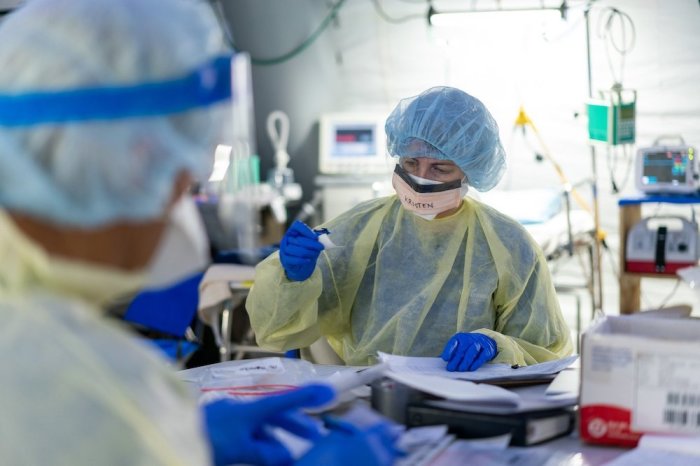People with blood type O less susceptible to COVID-19, new studies suggest

People with blood type O are less likely to become infected with the severe acute respiratory syndrome coronavirus 2 that causes the deadly COVID-19 and are more likely to recover from the disease than any other blood group, according to two new studies published in the medical journal Blood Advances.
One study, Reduced prevalence of SARS-CoV-2 infection in ABO blood group O, examined coronavirus tests results from 473,654 individuals in Denmark from Feb. 27 to July 30 whose blood group was identified.
Some 7,422 of the tests were positive for the virus while 466, 232 were negative. Among the negative tests 32% were men, and the median age was 50. Among the positive cases, 32.9% were men, and the median age was 52.
When the infected were measured by blood type, researchers found that “considerably fewer group O individuals were found” while “more A, B, and AB individuals were noted.”
“Here, we demonstrate that blood group O is significantly associated with reduced susceptibility to SARS-CoV-2 infection. Additionally, ABO blood groups were not associated with rates of hospitalization or death following infection,” researchers wrote.
Previous studies have suggested a link between blood type and susceptibility to severe acute respiratory syndrome coronavirus and evidence in the second study published Wednesday, The association of ABO blood group with indices of disease severity and multiorgan dysfunction in COVID-19, support this conclusion.
“Collectively, our data indicate that critically ill COVID-19 patients with blood group A or AB are at increased risk for requiring mechanical ventilation, CRRT (Continuous Renal Replacement Therapy), and prolonged ICU admission compared with patients with blood group O or B. Further work is needed to understand the underlying mechanisms,” the study noted.
Data for this study were collected from consecutively admitted ICU patients in six metropolitan Vancouver, Canada, hospitals between Feb. 21 and April 28.
They examined data from 125 critically ill COVID-19 patients who were admitted to the ICU from March 1 to April 28 but only 95 of them had blood group information available.
Of the 95 ICU patients included in the analyses, 57 were blood group O or B, and 38 were blood group A or AB. The study found that a greater proportion of A or AB patients (32 or 84%) required mechanical ventilation compared with O or B patients (35 or 61%).
Blood group A and AB patients also had a greater probability of requiring mechanical ventilation after adjusting for sex, age, comorbidity status and treating death as a competing risk. A greater proportion of A or AB patients (12 or 32%) also required CRRT compared with O or B patients (5 patients or 9%) and had a greater probability of requiring CRRT after adjusting for age, sex, comorbidity status, and treating death as a competing risk.
Median ICU length of stay was longer in A or AB patients (13.5 days) than in O or B patients (nine days) among other observations.
“In conclusion, we demonstrate that critically ill COVID-19 patients with blood group A or AB are associated with an increased risk for requiring mechanical ventilation, CRRT, and prolonged ICU length of stay compared with patients with blood groups O or B. Further research is required to delineate the biological mechanisms underpinning these findings,” the researchers noted.
As of Thursday, nearly 39 million people around the world have been infected by the new coronavirus and more than 1 million have died from the diseases, according to data from Johns Hopkins University.
















![[Ready to PUB] Christian psychologist: Kids must develop 'resilience' to fulfill God's purpose for them](https://cdn.christianpost.com/images/cache/thumbnail/25/92/259219_a_300_200_658_146.jpg)











